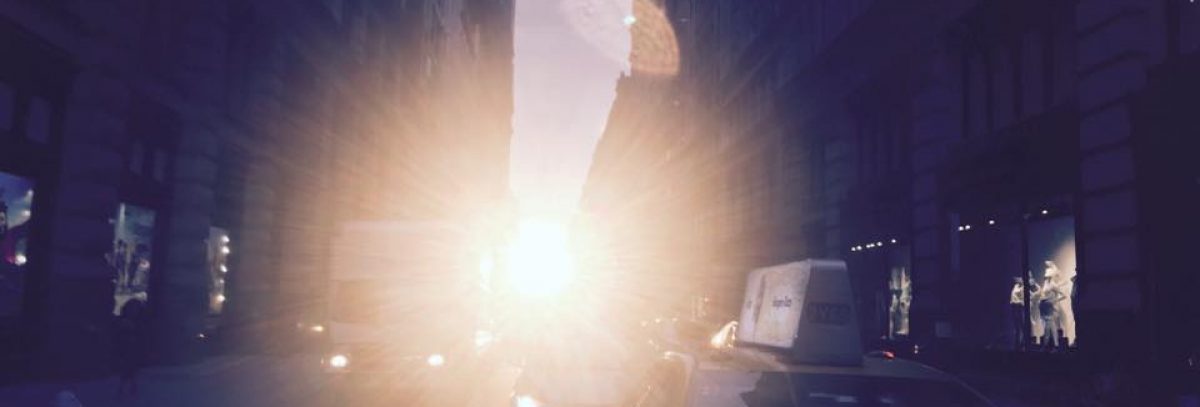Skyleen Espinal
24 February 2020
ENG 1121
Word Count: 1,000
Rising Stars Dance Studio – Discourse Community
Rather than being at the park with my friends, or at a friends house after school playing video games, I chose to spend the majority of my time in dance class. When I had first started at the age of three, it was just a hobby; just something to do out of pure enjoyment, and it wasn’t till I noticed how dedicated and passionate I was, that I realized dance was more than just a hobby for me. It was my discourse community, and it was life. I say this because I was basically raised in the dance studio, and the other dancers became my extended family, and it has given me opportunities to connect with amazing people, to reach for the stars, and to accomplish goals.
As a dancer at Rising Stars Dance Studio, there were responsibilities and goals each dancer had to fulfill. Considering that every dancer is different, like some are more skilled at turning than they are at leaping, or some are more flexible than the other, we each had our own individual goals to accomplish. However, as a team, our main goals were to gain more technique, and prepare for competition and our recital which was at the ending of the school year. Preparing for these performances used to be the most stressful process of them all because it can get really competitive within our own community, and it will get kind of ugly between our own peers. It would get hectic during this process too because being that we need more time to rehearse, we would sacrifice a lot of our free time to practice our routine, even if we didn’t have class that day. We were a class full of females, and we were like sisters, and there were times where we would get catty and bicker or snark at each other, and sometimes would get jealous if another dancer was put in the front or got a solo for a piece. This may sound toxic, but it is just a part of dance that people who aren’t dancers, usually don’t understand. With that being said, in order for anyone to be a part of this community, technique, passion, and dedication are definitely needed.
When you have technique, you’re able to understand the language we use within our community, and you’re able to keep up with the team. When you lack technique, it makes you a weaker dancer, and you can’t advance till you prove your technique is up to par. In dance, you can be the most talented dancer, but if you lack passion, you’re considered boring because there is no presence. That is because with passion, comes emotion, and dance is essentially “emotion in motion.” Although competing and winning first place was a goal, and perfecting our pieces for recital, we also had a purpose and that was to express our emotions, and use our bodies as a way to communicate with the audience. Our choreographer would always choose a song and make a story, and it would be our duty to communicate that story through our movements, and ensure some type of impact on the judges / audience. Lastly, dedication is an important trait to have as a dancer because you’re committed to a team, and even though going to your friends barbecue on Saturday sounds nice, you have to sacrifice your time for dance. You also have to be so dedicated that you’re able to persevere through pretty much anything, such as taking harsh criticism from teachers, having to keep going when your toes are literally bleeding from being on pointe, or falling on stage, because as you’ve probably heard before – “the show must go on.”
There are a bunch of phrases you’ve probably heard before like “the show must go on” “take it from the top” or “break a leg” and although these phrases are said in this community, there is a specific language we use to communicate movements, which is called dance terminology. Dance terminology can depend on what genre of dance you do. My team and I were a diverse group of dancers meaning we were experienced in different genres of dance such as, ballet, tap, jazz, hip hop, pointe, and contemporary, and these genres of dance, each had terminology of their own. Ballet terminology is in French and we would say things like “battement developpe” and “coupe-jete en tournant.” In tap class, terms like “pullbacks” and “maxie ford” are used, and in jazz, some basic terms include, “axel turn” and “fan kick.”
Till this day, I find myself saying things that sound perfectly normal to a dancers ear but sound weird to a non dancer, I catch myself counting from five, six, seven, eight, from time to time instead of one, two, three, four but this goes to show how much being in this discourse community has influenced my life, and it still and always be a part of me.



